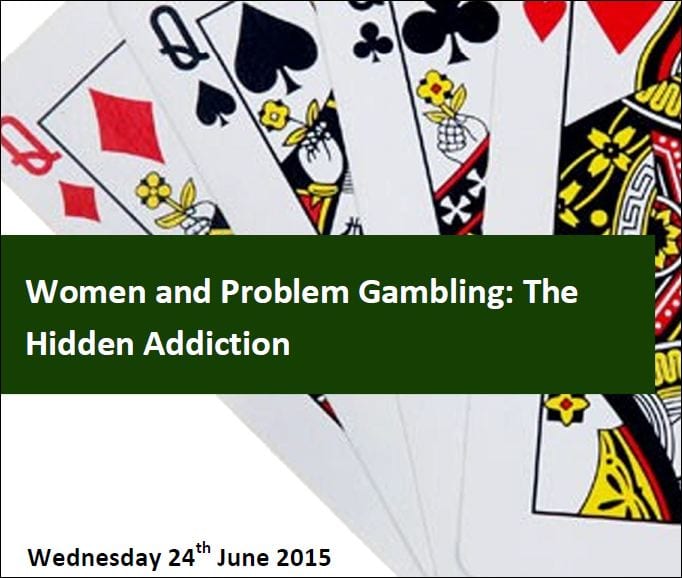by rbartels | May 7, 2015 | Forensic
Last month (April 21-23), three members of the FCRG – Dr. Adrian Parke, Andrew Harris (research assistant), and Dr. Amanda Roberts all presented some their recent research findings at a conference in Toronto, Canada. The conference (Discovery 2015) is run annually by The Responsible Gambling Council (RGC). The RGC is an independent non-profit organisation dedicated to problem gambling prevention. Given the aims of the RGC, the Discovery conference is a key event for the FCRG gambling researchers to disseminate the results of their research.
Dr. Adrian Parke presented a poster entitled “The Role of Stake Size in Loss of Control in Within-Session Gambling“. Using a repeated-measures design, this study found that participants’ decision-making became increasingly worse (impaired) when gambling at higher stakes (£20 per spin on a virtual roulette simulation) compared to lower stakes (£2 per spin). This impaired decision-making occurred regardless of whether participants were winning or losing. These results provide support for a stake-related risk factor for problem gambling, other than rate of loss. Dr. Parke and his colleagues suggest that future research should examine the effects of stake size in conjunction with other characteristics of EGM (Electronic Gaming Machine) gambling.
Andrew Harris presented a poster entitled ” Are Executive Functions Affected by Slot Machine Speed of Play? The Impact of Reel Speed on Motor Response Inhibition”. This study found empirical evidence that faster game-play on an electronic slot machine simulator led to a greater loss of control. This loss of control manifested as an impairment in motor response inhibition, measured via an integrated Go/No-Go paradigm. Implications of gambling harm minimisation strategies are discussed.
Dr. Amanda Roberts presented a poster entitled ” Gambling Problems, Traumatic Life Events and the Perpetration of Violence”. This study aimed to examine the relationship between problem-gambling and violence – including intimate partner violence (IPV) and traumatic life events – in a nationally representative sample of men in the UK. The results revealed a strong relationship between gambling problems and family violence (as well as other forms), especially in those with comorbid alcohol dependence. Dr. Roberts and her colleagues argue that negative effects associated with problem-gambling (worsened by alcohol abuse in some cases) can lead to stress and antagonism that is directed towards others, particularly those in immediate surroundings (e.g, family members). These findings suggest a need for problem-gambling treatment services to tailor treatment for clients who present with such issues.
Also, on the 19th April, before the conference began, Dr. Parke and Dr. Roberts attended (by invitation) the “First North American Regional Meeting of the International Think Tank on Gambling Research, Policy and Practice” in Toronto (hosted by the Gambling and Addictions Research Centre, AUT University and the Ontario Problem Gambling Research Centre). The ‘think tank’ focused on discussing the ‘Conceptual Framework of Harmful Gambling’ and how longitudinal research can inform the Framework.
On the 24th June, the FCRG will be hosting a conference on the issue of ‘Women and Problem-Gambling”. Click this link here for more details and a link to the registration page.
by rbartels | Apr 17, 2015 | Forensic
Sexual offending is a major problem within society due to the serious consequences it causes the victims, families, and community. As a result, psychologists are hard at work trying to understand sexual offenders more deeply so that we can devise better risk assessment methods, and provide more effective prevention and intervention strategies. However, the research is not always conveyed effectively to the public.
Therefore, on Friday 15th May, researchers within the Forensic and Clinical Research Group at the University of Lincoln will be running a free event to showcase what forensic psychology has taught us about sexual offending. Anyone who attends will learn about what kinds of research are being undertaken at the university and how it can be used in the real-world. It is hoped that the event will dispel common myths about sexual offending, while providing useful insights into what we do know. This will include talks by forensic psychology experts and PhD students, along with demonstrations of the research that we’re doing.
Admission to this public event is free of charge and it will run from 2-4pm. Note, given the nature of the topic, it is not suitable for anyone under the age of 18.
The event will take place in room BL1105 & BL1106 in the David Chiddick Building on Brayford Wharf East (opposite the university’s library). If you are interested in coming along, please follow the signs to the area where the event is taking place.
Further information can be acquired here as well as from Dr Ross Bartels (rbartels@lincoln.ac.uk) or Mrs Zoe Mead on 01522835510 or zmead@lincoln.ac.uk
by rbartels | Apr 10, 2015 | Forensic
On the 27th March, Dr Robert Lehmann was invited by Dr Ross Bartels to present some his research to the FCRG, along with colleagues from Lincolnshire Probation and HMP Wakefield.
Robert is a postdoctoral Research Fellow at the Institute of Forensic Psychiatry, Charité – University Medicine Berlin in Germany. His research focus is on the prognostic and diagnostic value of sexual offenders’ crime scene behaviour.
Robert presented research showing that crime scene behaviours (CSBs) can be used to validate existing theoretical models of child abuse. He also presented research indicating that CSBs add incremental validity to a widely used measure of sexual recidivism (Static-99) in child abusers and rapists (both stranger and acquaintance).
The presentation was extremely interesting and showcased the valuable implications of Robert’s work for clinical practice, as well as for the scientific understanding of sexual offending.
For an open-access copy of some of Robert’s research, click on the link/s below:
Lehmann, R. J., Goodwill, A. M., Hanson, R. K., & Dahle, K. P. (2015). Acquaintance Rape Applying Crime Scene Analysis to the Prediction of Sexual Recidivism. Sexual abuse: a journal of research and treatment, 1079063215569542
Dahle, K. P., Biedermann, J., Lehmann, R. J., & Gallasch-Nemitz, F. (2014). The development of the Crime Scene Behavior Risk measure for sexual offense recidivism. Law and Human Behavior, 38, 569
Lehmann, R. J., Goodwill, A. M., Hanson, R. K., & Dahle, K. P. (2014). Crime Scene Behaviors Indicate Risk-Relevant Propensities of Child Molesters.Criminal Justice and Behavior, 41(8), 1008-1028.
You can also contact Robert at r.lehmann@charite.de

by rbartels | Mar 25, 2015 | Forensic
On 24th June (2015), the FCRG will be running and hosting an exciting one-day conference at the University of Lincoln entitled “Women and Problem Gambling: The Hidden Addiction”.
The conference aims to present new theoretical insights and research findings related to the topic of problematic gambling in women. There will be a focus on how this research can be applied in practice for those who work professionally with problem gamblers. We hope to begin answering some of the pressing questions surrounding the “hidden addiction” in women. Gambling researchers within the FCRG (Dr. Adrian Parke & Mrs. Julie Pattinson) will present some of their recent work, along with some notable internal and external collaborators. These include:
– Mr. Jim Rogers (University of Lincoln)
– Dr. Fulvia Prever (Addiction Center SSN Milano & AND Association)
– Dr. Henrietta Bowden-Jones (National Problem Gambling Clinic)
– Ms. Liz Karter (Level Ground Therapy)
– Ms. Ruth Champion (Gordon Moody Association)
Fees: Professionals (£70); External (non-UoL) students/trainees (£35); UoL students (£20)
Download the conference flyer
To register for the conference, please click here.
For more information regarding the conference itself, please contact Dr. Amanda Roberts (aroberts@lincoln.ac.uk).
by rbartels | Mar 1, 2015 | Forensic
onlinePROTECT are to deliver a new one-day workshop entitled “Internet-based Sex Offending: Case Formulation and Intervention Planning” in Edinburgh this year. However, due to unforeseen circumstances, the date of the workshop has now been changed to Thursday 11th June.
For more details or to register for the workshop, please click here.


